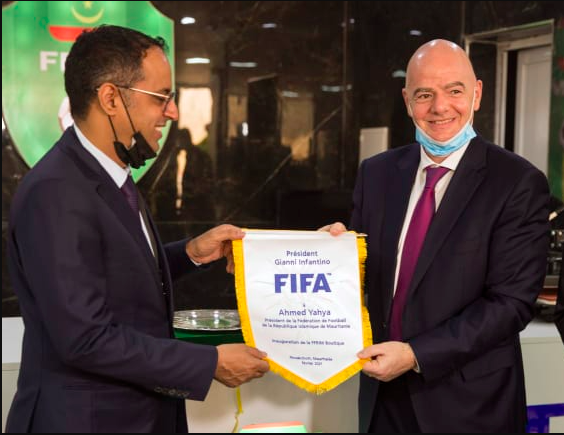In July of last year, a top Mauritanian club which had been defrauded by its own FA completed its 4-year long quest for justice when its claims were validated by the Supreme Court. Yet the man at the centre of the scandal, FA president Ahmed Yahya is allowed to stand in CAF presidential elections, with the blessing of Fifa. How can this be possible?
By Philippe Auclair
The news shook Mauritania but was barely mentioned outside the immediate region: Ahmed Yahya and his federation had been found to have illegally withheld money owed to ASAC Concorde, one of the country's top clubs, then transferred that money to a body that wasn't entitled to it. If this did not constitute embezzlement, it looked suspiciously like it. Mauritania's Supreme Court threw out Yahya's federation's last appeal in July 2020, marking the end of a 4-year-long dispute with the club, a judgement which was then followed by an order of execution at the end of December. The verdicts vindicated the claims made by ASAC Concorde, that Yahya's FA, The Football Federation of the Islamic Republic of Mauritania (FFRIM), had pocketed the proceeds (amounting to €75,000) of the transfers of two young Mauritanian internationals to Spanish club UD Levante back in January 2016, and this, under the direct and active supervision of Yahya himself.
Josimar understands that these court decisions led the Governance Committee of the African Football Confederation (CAF) to make supplementary checks when it considered Yahya's eligibility, a decision which infuriated the Mauritanian FA boss, now in the 10th year of his presidency. Yahya was subsequently cleared to run as a CAF presidential candidate when Mukul Mugdal, the chair of Fifa's Review Committee, concluded his eligibility check on 26 January of this year and informed ...



